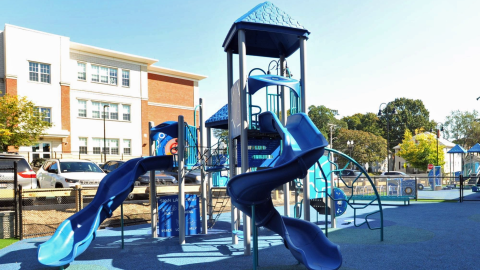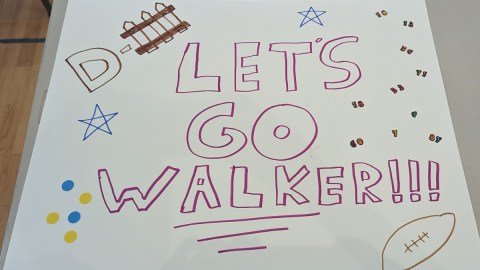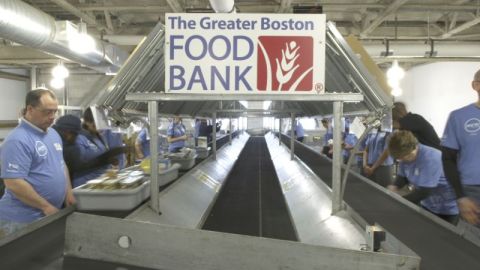 WATERTOWN, Mass. — Jade Fortes slapped the ground hard, signaling for her teammate to pass her the ball. She had to slap the ground, or else her teammate wouldn’t know where she was, since nobody on the court could see her.
WATERTOWN, Mass. — Jade Fortes slapped the ground hard, signaling for her teammate to pass her the ball. She had to slap the ground, or else her teammate wouldn’t know where she was, since nobody on the court could see her.
Fortes and her teammates for Perkins School of the Blind were among eight teams competing last week in the 2014 Eastern Athletic Association for the Blind Goalball Tournament. Fortes began playing goalball this year, after previously competing in track and field. But this is her first experience playing a sport in a team environment.
“What I enjoy about it is being a team and working together to win,” said Fortes, 17, of Brockton. “Verbal communication is key. You need to let your teammates know where you are at all times, because you’re all blindfolded, so hearing is most important.”
Yes, blindfolded. While every participant in goalball has impaired vision, the extent varies. To put everyone on a level playing field, players wear goggles that ensure that no one can see a thing. So Fortes, who has some slight vision, gets to walk in the shoes of some of her classmates when she takes the court.
“When I put on the goggles, it’s a drastic change, because you’re not relying on your vision anymore,” she said. “You’re relying on the tactile line, hearing, stuff like that. Some of my other classmates, I wonder how they do that all the time. I don’t know how they do it. They’re pretty awesome.”
Goalball was invented in Europe in 1946 for veterans who had lost their vision in World War II. Players attempt to roll a 3-pound rubber ball into their opponent’s goal, which spans the length of the serving line on a volleyball court. The ball has bells inside, so the players (three on each side) must listen to judge the position of the ball. Because hearing is so crucial, coaches and spectators must remain completely silent during play. They can only instruct or cheer when the ball is dead.
Florida School for the Deaf and Blind won both the boys and girls championships in this year’s tournament, which also included schools from New York, Maryland, North Carolina, Virginia, West Virginia and Pennsylvania. The two-day event was run with the help of volunteers, including NESN employees, at Perkins’ Howe Gymnasium. When they are not playing each other, goalball players find other victims. Boston Celtics players Joel Anthony and Kelly Olynyk visited Monday to take part, although they didn’t know what they were in for until they got there.
“They said we were going to play some game with kids, and anything with kids, I’m like, ‘OK, definitely,'” Anthony said. “Then we got there and I was like, so, what game, exactly, are we playing? “They go, ‘Yeah — we’re going to really have to explain it to you.'”
Anthony, Olynyk and a Perkins student they were teamed with didn’t fare too poorly — Anthony guessed they won two games out of four — but having two near-7-footers on the same team wasn’t the obvious advantage it might seem. The Celtics players endured some trash talk before the games and got beaten for three goals in the same spot by an opponent with surprisingly accurate aim, given that she couldn’t see. Anthony would have loved to give her props, yet he couldn’t be sure which player it was that took them to school, due to the blindfold.
“I had a great time doing it,” Anthony said. “Obviously, it’s a lot different, something you’ve never done before. But you’re using your other senses, like feel and sound, especially. You appreciate what it takes for those kids to play the sport.” “We were the rookies over there,” he added. “They showed us the ropes.”
Check out more goalball action from Perkins>>
Photo via Anna Miller/Perkins



